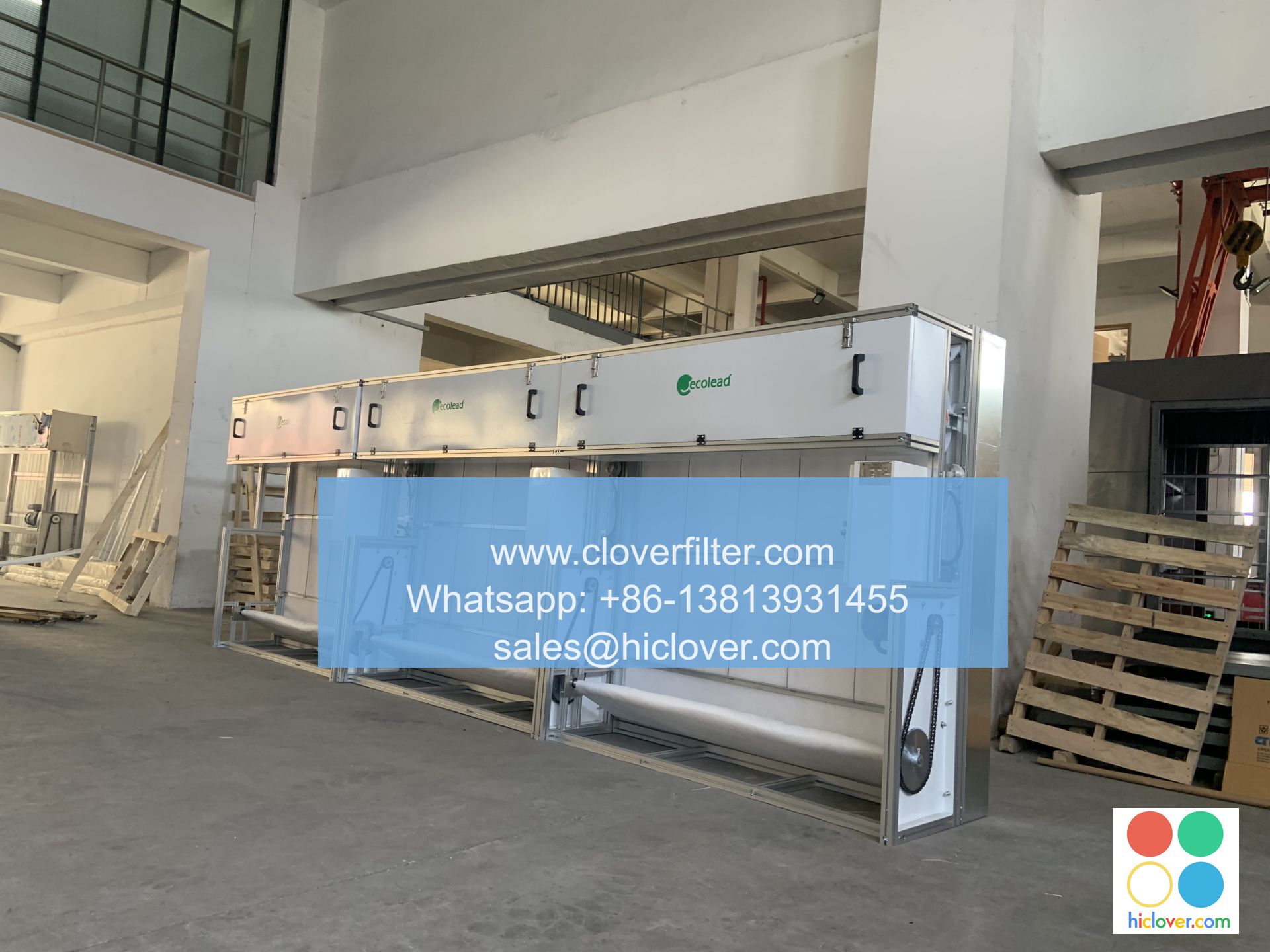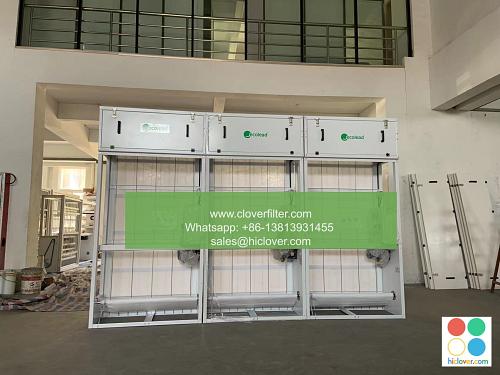Vancouver’s Automatic Roll Air Filter Plant: A Model for Sustainable Manufacturing

Vancouver’s Automatic Roll Air Filter Plant is a flagship facility that exemplifies the city’s commitment to sustainable manufacturing. Located in the heart of British Columbia, this plant is a marvel of modern engineering and environmental stewardship. The facility is designed to produce high-quality air filters while minimizing its ecological footprint, making it an exemplary model for industries seeking to reduce their environmental impact.
The plant’s architecture and design are carefully crafted to optimize energy efficiency and reduce waste. The building’s envelope is clad in locally sourced, sustainable materials, and its roof is adorned with a lush green roof, providing insulation and habitats for local wildlife. The facility’s interior is equipped with state-of-the-art LED lighting and advanced climate control systems, ensuring a comfortable working environment while minimizing energy consumption. The plant’s designers have also incorporated a sophisticated rainwater harvesting system, which collects and recycles rainwater for non-potable purposes, reducing the facility’s water footprint.
One of the plant’s most impressive features is its commitment to reducing waste. The facility operates a closed-loop production system, where materials are continually cycled back into production, minimizing the amount of waste generated. The plant’s advanced manufacturing processes also ensure that products are designed with recyclability and reusability in mind, reducing the likelihood of products ending up in landfills. The plant’s waste reduction strategies have resulted in a significant decrease in waste disposal costs and a substantial reduction in greenhouse gas emissions.
The Automatic Roll Air Filter Plant is also a hub for innovation and research. The facility is equipped with cutting-edge technology, including advanced air filtration testing equipment and a dedicated research and development laboratory. The plant’s team of engineers and scientists work tirelessly to develop new products and improve existing ones, ensuring that the facility remains at the forefront of the air filtration industry. The plant’s commitment to innovation has led to the development of novel air filtration solutions, which have been adopted by industries worldwide.
The plant’s impact on the local community is also noteworthy. The facility has created numerous job opportunities for local residents, contributing to the region’s economic growth and development. The plant’s management has also established a comprehensive training program, providing employees with the skills and knowledge necessary to excel in their roles. The facility’s commitment to community engagement is evident in its numerous partnerships with local organizations and educational institutions, promoting environmental awareness and education.
In addition to its economic and social benefits, the plant has also made significant strides in reducing its environmental impact. The facility has implemented a range of initiatives aimed at reducing its energy consumption, including the installation of solar panels and a biomass boiler. The plant’s energy-efficient systems have resulted in a substantial reduction in greenhouse gas emissions, making it an exemplary model for sustainable manufacturing. The plant’s environmental management system is certified to ISO 14001, demonstrating its commitment to environmental responsibility.
The Automatic Roll Air Filter Plant’s commitment to sustainability has earned it numerous accolades and certifications. The facility has been recognized for its excellence in environmental management, energy efficiency, and innovation. The plant’s products have also been certified to various international standards, including ASHRAE and ISO 16890, demonstrating their quality and performance.
In conclusion, Vancouver’s Automatic Roll Air Filter Plant is a shining example of sustainable manufacturing in action. The facility’s commitment to reducing waste, optimizing energy efficiency, and promoting innovation has made it a model for industries seeking to minimize their environmental impact. As the world continues to grapple with the challenges of climate change and environmental degradation, the Automatic Roll Air Filter Plant stands as a beacon of hope, demonstrating that sustainable manufacturing is not only possible but also profitable.
FAQs
- What is the Automatic Roll Air Filter Plant’s primary product? The plant’s primary product is high-quality air filters, designed to meet the needs of various industries, including commercial, industrial, and residential.
- How does the plant reduce waste? The plant operates a closed-loop production system, where materials are continually cycled back into production, minimizing the amount of waste generated. The plant’s advanced manufacturing processes also ensure that products are designed with recyclability and reusability in mind.
- What certifications has the plant received? The plant’s environmental management system is certified to ISO 14001, and its products have been certified to various international standards, including ASHRAE and ISO 16890.
- How has the plant impacted the local community? The plant has created numerous job opportunities for local residents, contributing to the region’s economic growth and development. The plant’s management has also established a comprehensive training program, providing employees with the skills and knowledge necessary to excel in their roles.
- What initiatives has the plant implemented to reduce its environmental impact? The plant has implemented a range of initiatives aimed at reducing its energy consumption, including the installation of solar panels and a biomass boiler. The plant’s energy-efficient systems have resulted in a substantial reduction in greenhouse gas emissions.

